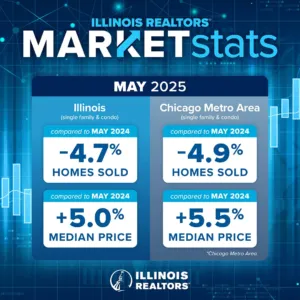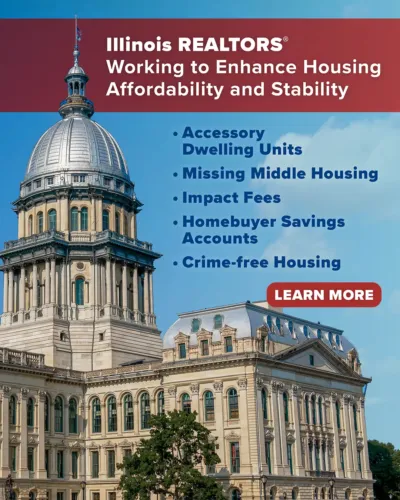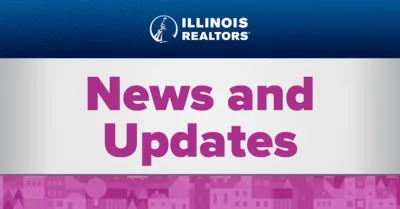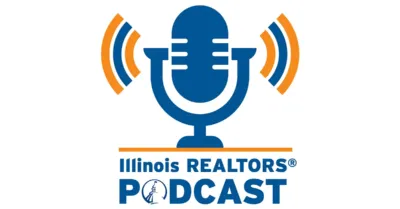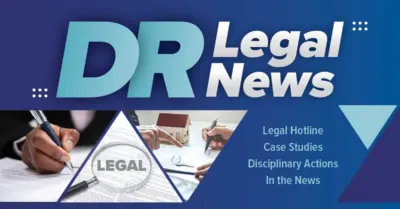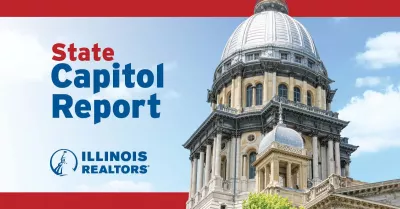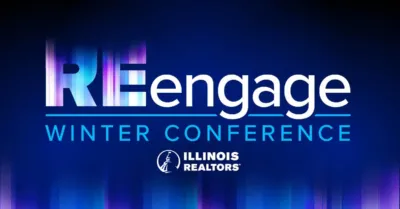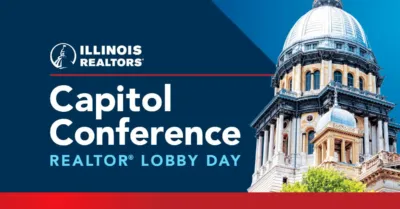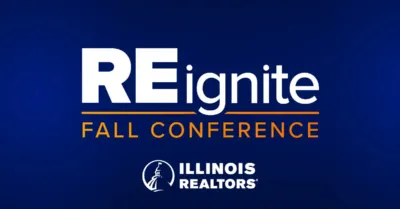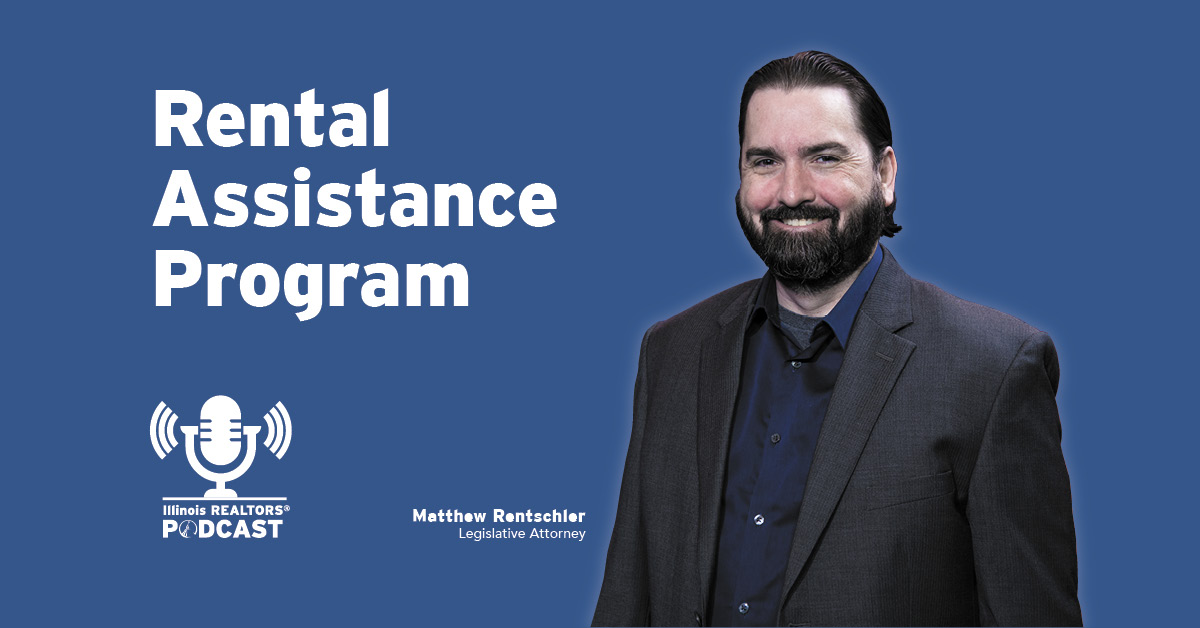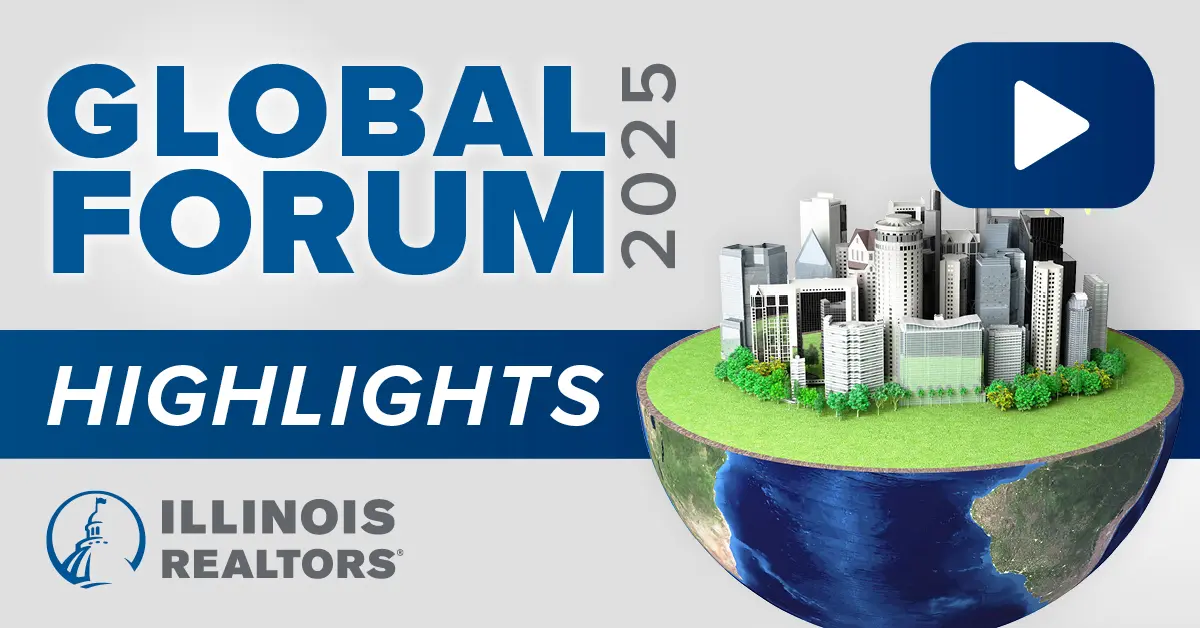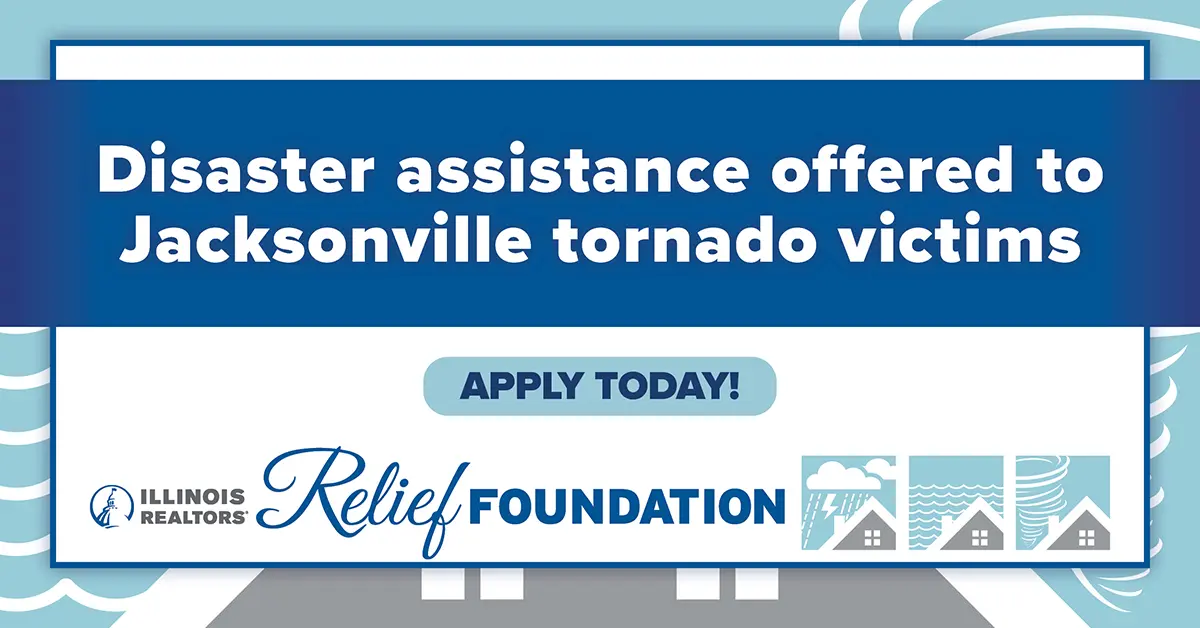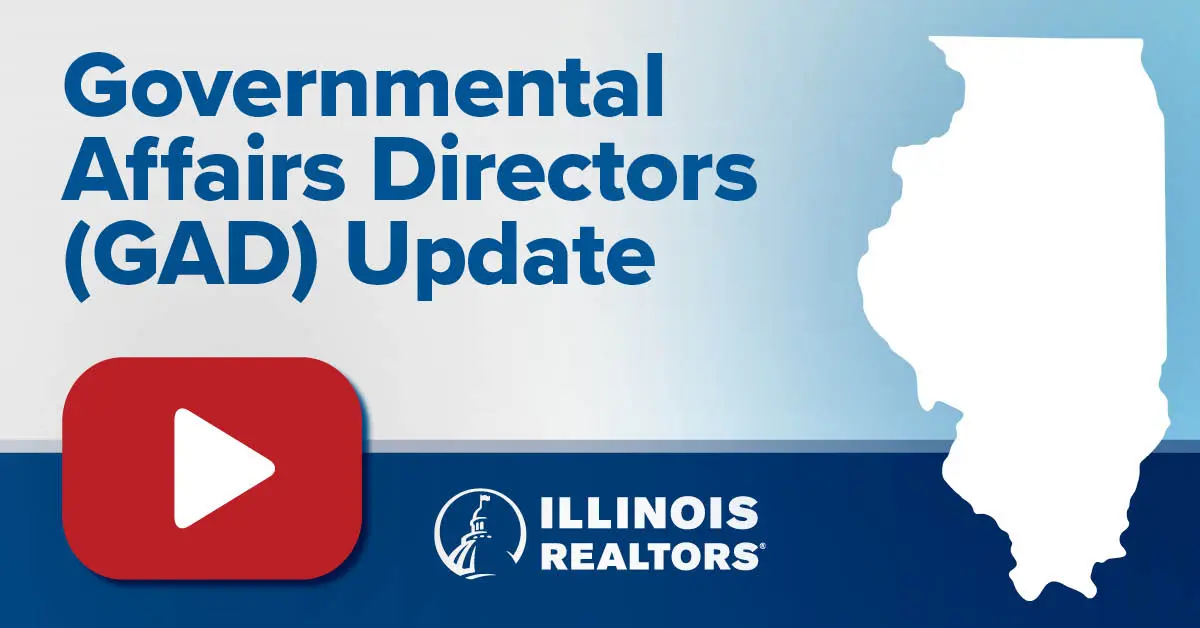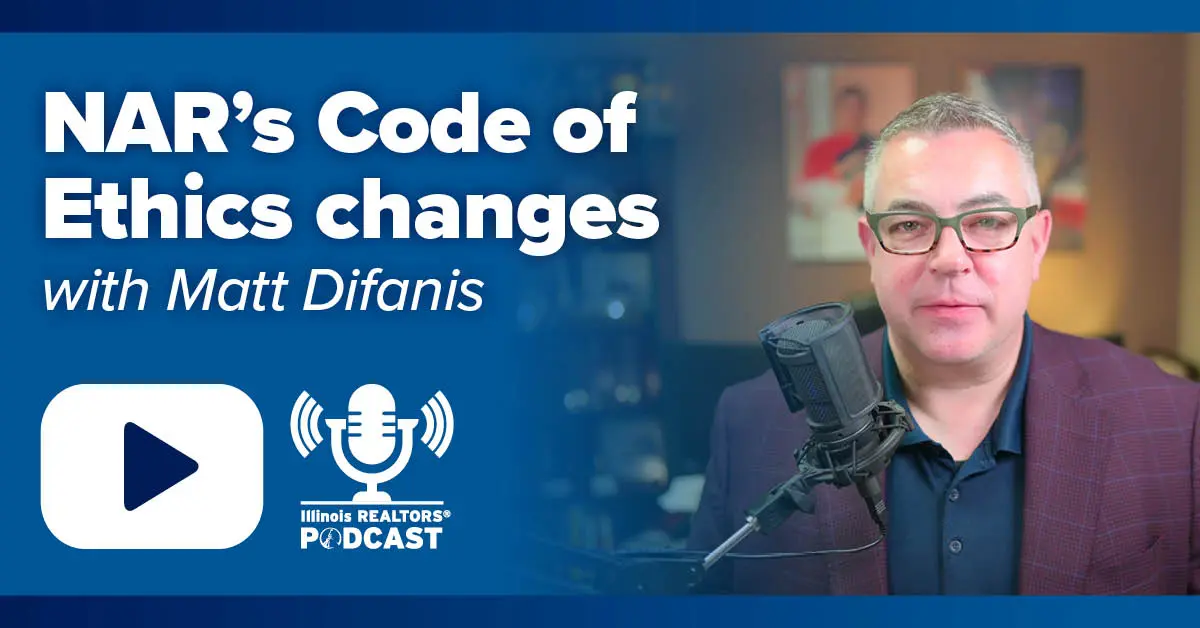In the latest Illinois REALTORS® podcast, Legislative Attorney Matt Rentschler talks about rental assistance programs available to tenants and housing providers in Illinois, reviews what happened during the first round of the Illinois Rental Payment Program and what’s ahead for the second round that begins in early December.
He provides insights for housing providers, commends the way they’ve responded to the pandemic and reviews important information they need to know.
For more information, read our previous blog post and visit the website of the Illinois Housing Development Authority, illinoishousinghelp.org.
Full transcript:
Jeremy Goeckner: Hello, and welcome to the IR Weekly podcast, keeping you up to date with all of the latest news in the REALTOR® world. I’m Jeremy.
Kelli Jessup: And I’m Kelli.
Jeremy Goeckner: And on today’s episode, we are welcoming back Illinois REALTORS®, legislative attorney, Matt Rentschler to talk about the latest round of the Illinois Rental Assistance Program.
Kelli Jessup: We’re sure you all remember Matt’s earlier rockstar appearance on IR Weekly, but just in case you’re new to the show, here’s a little background on him. Matt is a native of Rochester, Illinois, and is a legislative attorney here at Illinois REALTORS®. He graduated with his bachelor’s degree from Loyola University in Chicago and earned his law degree from Southern Illinois University School of Law. Before joining Illinois REALTORS® in 2020, Matt was a chief legal counsel for the Illinois State Police, advising the agency on numerous pieces of high-profile legislation. Prior to that, he worked as in-house corporate counsel for retail company with more than a 100 stores in the U.S. Matt, welcome back to the show.
Matt Rentschler: Oh, it’s good to be back, back in response to unpopular demand.
Jeremy Goeckner: From very popular demand I would say.
Matt Rentschler: Well, Gideon broke my record for most listen to podcasts.
Jeremy Goeckner: I know. This is a sore spot, isn’t it? Now we got to write this wrong. He’s coming for you Gideon. But no, of course, Matt, I absolutely love having you on the show because you make every one of us smarter every time you get on the show here.
Matt Rentschler: Well, I don’t know about that. It’s Monday morning, but in the weekend, it’s always a good weekend when Loyola basketball wins and the Bears don’t lose.
Jeremy Goeckner: There you go. There you go. That’s what we’re going to take here. But so I also love it because Kelli and I don’t have to struggle through understanding all of this stuff. So that’s why we have of you here. But let’s just start at the very beginning here just really quick for those that don’t know. So what is the Illinois Rental Assistance Program and how long has it been active?
Matt Rentschler: So, there are multiple programs currently in place right now that I think some of our listeners are aware of. There’s the county level program at Cook County, and there’s also the new court assistance program that’s been in place for the past few months, where if you have a pending eviction case, you may qualify for certain money allocated through the court system. There’s also the statewide program that is the first round was over the summer and money was doled out over the last few months. That program was completed. And there’s a new round of funding that is supposed to be accepting applications early December. And all this money is federal money being allocated through the state system.
Kelli Jessup: Yeah. So this fall, the governor announced that a second round of assistance would be available to housing providers and tenants starting in early November. But here we are and a little more than a week ago, the Illinois Housing Development Authority announced that the kickoff would be delayed. What can you tell us about that?
Matt Rentschler: Well, we’re really not sure the exact reason. Like you said, the applications were supposed to begin the first part of November, but the day that they were supposed to start accepting applications, they came out with a press release that they were delaying the program for another month. They said there were vendor issues with the state vendor used for applications. So that’s really all we know. We don’t know any specifics as to why beyond that.
Jeremy Goeckner: Yeah. But there isn’t any sense of like the programs in trouble or anything, at least not as such as what they’re telling us right now.
Matt Rentschler: No, no.
Jeremy Goeckner: It’s literally just kind of a clerical issue, right?
Matt Rentschler: Yeah. So they say it’s a vendor issue, which my experience with the state, that means that the vendor that they have to use for the programming to accept the applications, something maybe need to be fixed along those lines, but the money is still there to be doled out. And that they said that they intend to still try to get the money dispersed by the end of the year. Even though the applications won’t begin to be accepted till beginning of December. So hopefully they’re still able to stick with that deadline, but it just got delayed a little bit.
Jeremy Goeckner: Yeah, absolutely. Well, and there’s still a lot of money there from the American Rescue Plan I believe is where that came from, if I remember right.
Matt Rentschler: Yeah, yeah. No, yeah, you’re right. So this round of money is coming from, like I said, the American Rescue Plan, the federal legislation that was passed back in the spring. So what we know is the previous round of funding, there were applications well beyond the number of people they were actually able to assist. So while they were able to help just over 50,000 applicants, there were tens of thousands of applicants beyond that, that they weren’t able to assist. We know that there are still people out there, still housing providers out there that are in need of reimbursement for money that they’re owed due to the moratorium.
Jeremy Goeckner: Absolutely. Well, I mean, it’s a good reminder that even though we’ve come a long way in terms of the pandemic, there’s still a lot of stuff outstanding, like you said there. So have we been able to find out any details about the second round, like who is eligible and who isn’t? I mean, we talked a little bit about the overflow of applications there, but who is eligible for these payments?
Matt Rentschler: We don’t know a lot of specifics about this specific next round yet. We won’t know exactly the specifics until the application is actually released. And we haven’t seen that yet. What we do know is some of the information that’s come out is, the presumption is the requirements in that are going to be similar to the last round. Like I said, we don’t know for sure, but that’s the assumption at this point. And this round will cover up to 18 months.
Jeremy Goeckner: Oh, wow. Really that much.
Matt Rentschler: For rent owed between June of last year and April of next year. But the caveat to that is if you received money for certain months previously, and this kind of makes sense, you can’t double up on that money. So, you can only apply for money that you hadn’t received assistance for before.
Jeremy Goeckner: And that was the normal practice when it came to like, so most of this is for back rent that has not been paid.
Matt Rentschler: Yes.
Jeremy Goeckner: Can you also use it for future rent?
Matt Rentschler: It can be used for up to three months of future rent and that’s the federal regulations allow for that. But again, the last round was kind of similar and it’s up to 25,000 total. So, but if you applied last time or your tenant applied last time and you only received six months worth of rent, you can potentially still receive up to 12 more months worth of rent beyond that.
Kelli Jessup: So, in the meantime, have the concerns of housing providers changed or has the end of the eviction moratorium resolved the issues at all?
Matt Rentschler: No. I think it’s clarified some of the issues. If you think back to when the debate of whether they should extend the moratorium or they should end the moratorium part of that debate was, well, these people would be evicted right away. We had to extend this, but as we’re finding, and as we, the royal we kind of predicted a few months ago, it didn’t happen like that. It’s not going to happen like that because housing providers have stepped up and have been working with their tenants. And this isn’t just a trend in Illinois. This is a national trend. There’s a website. It’s a Princeton study. It’s evictionlab.org that tracks eviction filings all over the country. And it’s a pretty consistent trend where the number of filings after the eviction moratorium ended, the number of filings are still actually below the average of a normal year. So that tells you that even though these housing providers are owed money and we know they are, we can tell that by the number of applications that have been filed for assistance, even though they’re owed money, they have shown that they’re willing to work with their tenants. They understand what they’re going through. So I think that story hasn’t been told enough, but it should be because housing providers, they deserve a lot of kudos for what they’re doing.
Jeremy Goeckner: Yeah. I completely agree with you there about that story needing to be told more because the worry of people getting evicted during a pandemic, that’s very visceral. We know that and we feel for that, but these housing providers do still need help and they do still need support like that. And you’re right. That’s pretty much like the key component of this, isn’t it? Like making sure that everybody is helped in this, not just one side or the other.
Matt Rentschler: Yes. And it, like I said, there are people who have been honestly impacted by COVID. There are tenants who are need of assistance that haven’t been able to pay their rent, but housing providers, like I said, have stepped up and recognized that. And that’s shown in the statistics both in Illinois and nationwide that there hasn’t been this tsunami or this wave of eviction that there could have been with the tens of thousands of dollars some landlords are owed, but so for all the terrible news that comes out of this, that’s actually, I think kind of heartening, piece of news.
Jeremy Goeckner: I agree. Wonder why we’re not hearing more of it. Well, Matt, is there anything that our Illinois REALTOR® members can do in preparation for this new round of the program to begin?
Matt Rentschler: Well, I think communicate with two major parties, your tenants and your legal counsel. Like I said, for this next round of assistance, if your tenant’s still behind on rent due to COVID, they’re potentially qualified for this program, just be in communication with them. Because again, similar to last program, one of the requirements is that both the tenant and the landlord has to sign off. If the application comes from the landlord, the tenant still has to sign off on that. And we’ve heard stories of that where some tenants weren’t cooperative for whatever reason, and that’s why the application was denied.
So reach out to your tenant, if you want to receive this money and make sure you’re working together on this, and obviously reach out to your legal counsel as well. Because like I said, we don’t know the specifics, 100% of what the specifics of the next program are. And you want to be prepared to know what you’re signing off on in terms of whether there’s any strings attached that maybe you don’t want to have to deal with or make sure that you’re aware of it before you sign off on this.
Jeremy Goeckner: If there’s ever anything we want to get clear on IR Weekly, it’s always consult your legal attorneys,
Kelli Jessup: Absolutely.
Jeremy Goeckner: No matter what.
Kelli Jessup: That’s right. Well, thank you, Matt, for joining us this week and bringing us some much needed clarity to the situation and breaking it down for our listeners. Again, if you want to keep up to date on everything with the Illinois rental assistance program or any legal happenings in the REALTOR® world, you can find it all on the Illinois REALTORS® website at www.illinoisrealtors.org.
Jeremy Goeckner: That’s it for this week’s IR Weekly podcast. Thank you all for listening and as always give us a rating and a review on your podcast app of choice. And if you want any more content, simply search for Illinois REALTORS® on your favorite social media app. We will see you next week.

